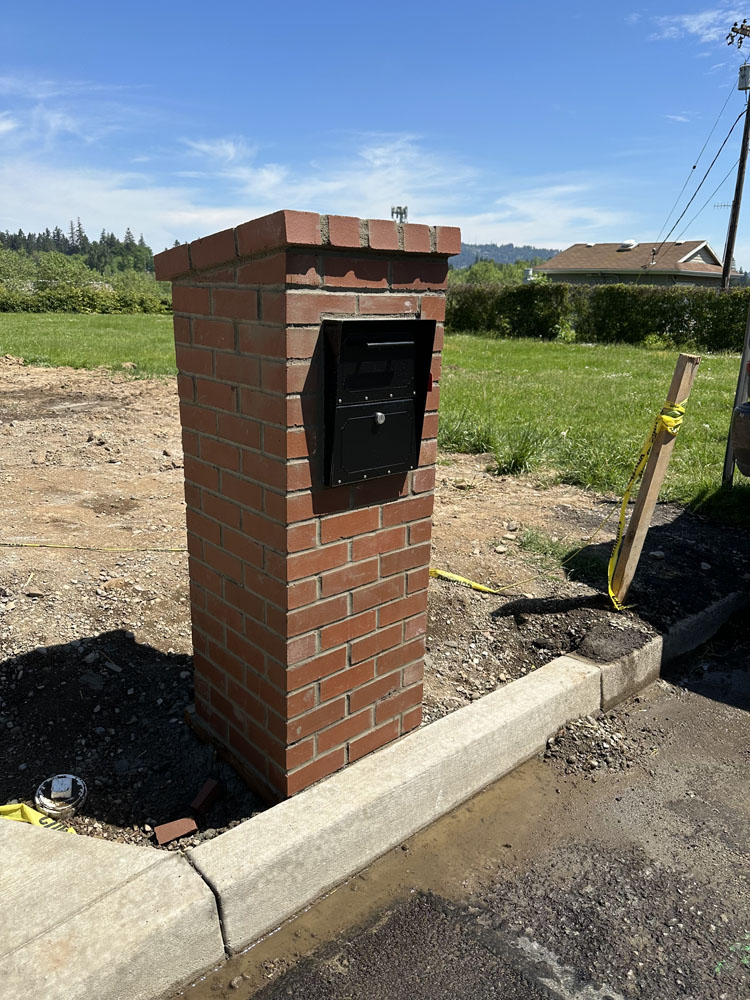Introduction
Creating stunning retaining walls is not just about aesthetics; it's about functionality, durability, and enhancing your outdoor space. When you think about retaining walls, you might envision sturdy structures that prevent soil erosion or define landscape boundaries. But there's so much more to them! Engaging a skilled masonry contractor can make all the difference in both design and execution.
In this comprehensive guide, we'll explore everything you need to know about creating beautiful retaining walls with the expertise of a masonry contractor. Whether you're looking to bolster your garden, create tiered landscaping, or simply add a touch of elegance to your property, we've got you covered!
Understanding Retaining Walls
What Is a Retaining Wall?
A retaining wall is a structure designed to hold back soil and resist lateral pressure from the earth it retains. They are commonly used in landscaping to create level areas on sloped terrain, allowing for gardens, patios, walkways, and various other features.
Why Are Retaining Walls Important?
Retaining walls serve multiple purposes:
Soil Erosion Prevention: They stabilize soil on slopes and prevent erosion. Landscaping Aesthetics: A well-designed wall enhances the overall look of your garden. Maximizing Usable Space: They create flat areas where you can plant or build. Water Drainage Control: Many designs help manage water flow effectively.The Role of a Masonry Contractor in Building Retaining Walls
What Does a Masonry Contractor Do?
A masonry contractor specializes in building structures using materials like brick, stone, block, and concrete. Their expertise is crucial when it comes to constructing retaining walls because they understand the intricacies of material properties and structural integrity.
Why Hire a Masonry Contractor for Your Project?
When it comes to creating stunning retaining walls with the help of a masonry contractor:
- Expertise: They have trained eyes for design and structural evaluation. Quality Materials: A professional will know which materials will work best for your project’s needs. Efficiency: Contractors can complete projects faster than DIY efforts. Compliance: They ensure that all construction meets local regulations and codes.
Choosing the Right Materials for Your Retaining Wall
Natural Stone vs. Concrete Blocks
Natural Stone
Natural stone provides an elegant appearance but can be expensive and challenging to install. Its unique textures and colors make every wall one-of-a-kind.
Concrete Blocks
Concrete blocks are cost-effective and versatile. They come in various colors and textures, making them suitable for different design styles.
Other Material Options
Wood: Great for rustic designs but may require maintenance over time. Brick: Offers classic appeal; however, it may not be ideal for very tall walls. Gabion Baskets: These wire mesh baskets filled with stones provide an industrial aesthetic while being functional.Design Considerations for Retaining Walls
Height Requirements
The height of your retaining wall will greatly influence its design and structural requirements. Walls over four feet often require engineering support to ensure safety.
Slope Assessment
Understanding the slope's angle is vital before beginning construction; steeper slopes may necessitate additional reinforcements.
Drainage Solutions
Incorporating proper drainage solutions will extend the lifespan of your retaining wall by preventing water buildup behind it.
Planning Your Project with a Masonry Contractor
How to Start Your Project?
Define Your Goals: What do you want? A decorative feature or functional support? Budgeting: Discuss potential costs with your masonry contractor upfront. Site Assessment: A professional will evaluate land conditions before proceeding.Creating Stunning Designs Together
Your masonry contractor can offer design ideas based on their experience while incorporating your preferences for color, texture, and style.
Building Process Overview
Preparation Steps
Utility Marking: Before digging begins, identify underground utilities. Soil Testing: Assess soil quality to ensure stability. Excavation: Remove topsoil as needed based on planned wall height.Constructing Your Retaining Wall
Foundation Laying- A solid base ensures longevity; typically involves compacted gravel or concrete footing.
- Place blocks/stones according to chosen design while ensuring level alignment.
- Fill behind the wall with appropriate material for drainage purposes—gravel often works best.
Maintenance Tips for Longevity
Regular Inspections
Periodically check for signs of wear or damage such as cracks or bulging sections—address top-rated masonry contractor Oregon City these issues promptly!
Cleaning Techniques
Keep surfaces clean using gentle methods such as power washing or scrubbing—avoid harsh chemicals that may damage materials over time.
FAQs About Creating Stunning Retaining Walls
1. How much does it cost to build a retaining wall?
Costs can vary widely depending on materials used, size of the project, location challenges, etc., but typically range from $15-$50 per square foot installed by professionals.
2. Do I need a permit to build a retaining wall?
It depends on local ordinances; many municipalities require permits especially Masonry Contractor if walls exceed certain heights.

3. Can I install a retaining wall myself?
While it's possible for experienced DIYers, hiring a masonry contractor ensures safety and compliance with building codes while saving time!
4. How long do retaining walls last?
With proper construction techniques and maintenance practices in place—retaining walls can last several decades!
5. What happens if my retaining wall fails?
Signs include cracks or leaning; immediate action is necessary—consulting with your masonry contractor can help assess damages quickly!
6. Are there alternatives to traditional materials?
Yes! Options like recycled plastic lumber or even living walls exist—discuss alternatives with your masonry contractor based on aesthetics desired!
Conclusion
Creating stunning retaining walls with the help of a masonry contractor transforms landscapes while providing functional benefits such as erosion control and space maximization! By understanding project requirements—from material selection through maintenance—you’ll ensure lasting beauty tailored specifically to fit your outdoor aspirations!
Investing in professional assistance not only guarantees quality craftsmanship but also elevates your outdoor living experience! So why wait? Reach out today—and let’s get those creative juices flowing as we construct something remarkable together!